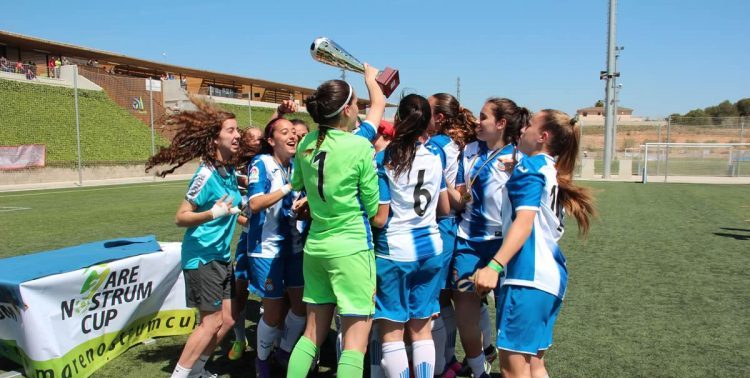
Facts
Did you know, women’s football was banned in 1921? Women were banned from kicking a ball and playing on the field with Spectators or a referee. Such was the case a century ago when the sport was termed as “quite unsuitable for females”. Almost half a century later, the Women’s Football Association (WFA), was formed which caused the lift of a 50 year-long ban and the progress made since is nothing less than remarkable. As of 2017, a total of 1,270 million registered female players have contributed to the sport and have brought women’s football global recognition and viewers. With new opportunities and growing awareness for the sport, the numbers keep rising every year. The FIFA Women’s Club World Cup held at the global level, the UEFA Women’s Champions League where female participants all across Europe compete for the title, and the AFC Women’s Club Championship held in Asia, continue to expand and grow in terms of revenue collected, number of teams, number of players and even the number of attendees for matches.
Problems Faced
Women’s Football, much like any other women’s sports, faces issues such as Gender Inequality, lack of proper contractual support, risky working conditions, and low pay. Female players are paid much less than their male counterparts. Research suggests that the average salary in the English Premier League is on an average of 99 higher than the top paid players in Women’s Football. Insecure working conditions also pose a huge problem in the women’s sport where they face a lack of contractual stability and agent support, the absence of proper childcare for professionals and other crucial aspects of their work. The situation persists amongst clubs and countries where the national teams also fail to support their players through adequate pay and proper recognition. The struggle to make or maintain a professional career in Football, against these odds, proves of high risk for large numbers of female players around the world.
Achievements
2019 was one of the most successful years for Women’s Football, the highlight of which was the FIFA Women’s World Cup in France. Games played at the highest level proved to be emotional with a positive impact and not just for Football fans but for also many women and girls across the globe. 1.1 billion viewers had watched the official broadcast coverage of the Women’s World Cup on all digital platforms, a massive number that showcases support for these athletes. The finals between the USA and the Netherlands emerged as the most- watched women’s football match in history. The huge crowd gathered in Mexico, Portugal and Europe to watch these matches also speaks volumes and shows the love fans hold for the Women’s Teams. Names like Alex Morgan, one of the richest female soccer players and Hope Solo, the two-time Olympic gold medalist, further bring massive recognition to the sport once considered as male-dominated.
Current Scenario
With new development programs launched by FIFA to train and sustain women’s football and players’ professional careers, the future of Women’s Football is highly optimistic. Financial Assistance, eradication of Gender Inequality and an increase in technical support hint towards a brighter future for women’s sport. With the 2023 Women’s World Cup not far away, a tonne of adjustments, policies, and developments, can be seen in progress. A recent victory at the UEFA Women’s Champions League by the FC Barcelona Women’s team has furthermore developed an interest and shown the critiques the level of professionalism, athleticism, and complete all-roundness women can achieve. India showcasing developments for women’s football with various training camps, female coaches and adapting the European culture for football are emerging as competitors in various competitions held around Asia. This overall growth in the development of Women’s Football is the bi-product of the efforts of various nations to bring this side of football to light.
Conclusion
Prodigy Experience is delighted to be a part of the beautiful game which transcends race, gender and space, to bring unity and respect. Prodigy Experience believes in equal rights and offers a wide range of opportunities to train and develop young female athletes. With a vast network of scouts, UEFA PRO Women’s coaches and connections to La Liga teams, Prodigy Experience aims to develop this side of football equally with the support of young and driven women all over the world.



